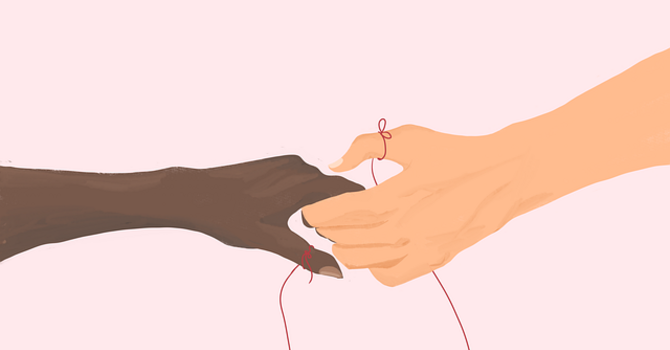
When most people think of ADHD, they often picture a hyperactive young boy bouncing off the walls. But ADHD isn’t just a childhood disorder and it certainly doesn’t look the same in everyone. For many women, ADHD flies under the radar for years, often misdiagnosed or missed entirely. Why? Because the symptoms in women tend to be more internal, subtle, and easier to mask1.
Why ADHD in Women Is Often Overlooked
ADHD (Attention-Deficit/Hyperactivity Disorder) is typically diagnosed based on criteria developed through studies that focused mostly on boys2. As a result, the way ADHD manifests in girls and women hasn’t always fit the mold. Many women grow up feeling “off,” “lazy,” or “too emotional,” not realizing that ADHD could be the root of their struggles.
Common ADHD Symptoms in Women
While every woman with ADHD is different, here are some of the most common ways the condition presents in adult women:
1. Chronic Disorganization
Even with the best intentions and planners galore, staying organized can feel like an uphill battle. From misplacing keys to struggling with time management or forgetting appointments, it often feels like your brain is working against you3.
2. Mental Exhaustion
Because many women learn to mask their symptoms, they often push themselves to the brink of burnout just to appear “on top of things.” Behind the scenes, this can lead to intense overwhelm, anxiety, and fatigue4.
3. Emotional Sensitivity
ADHD can heighten emotional responses. Many women feel things deeply, swing from joy to frustration quickly, or experience rejection sensitivity, feeling crushed by perceived criticism or disapproval5.
4. Hyperfocus
Yes, ADHD includes attention deficit but it also comes with periods of intense focus on something of interest, to the exclusion of everything else. This can be a gift, but it can also lead to neglecting important tasks or self-care6.
5. Difficulty Starting (and Finishing) Tasks
From laundry to long-term projects, initiating tasks can feel paralyzing. And even when you start, it’s not uncommon to leave things half-done due to distraction or mental fatigue3.
Misdiagnosis Is Common
Because ADHD in women often mimics anxiety, depression, or even hormonal imbalances, many women spend years being misdiagnosed7. They may be prescribed antidepressants or told they’re simply “stressed out” without receiving the support they truly need.
The Impact of Late Diagnosis
Being diagnosed later in life can be both a relief and a source of grief. Many women feel validation—finally understanding that their struggles aren’t due to laziness or a lack of willpower. But there can also be sadness over the years lost to self-doubt or untreated symptoms8.
Moving Forward: What Helps
-
Diagnosis & Treatment: A formal diagnosis can be life-changing. It opens the door to treatment options like therapy, coaching, medication, or lifestyle adjustments.
-
Community & Connection: Finding others who share your experiences can reduce shame and increase confidence.
-
Self-Compassion: ADHD isn’t a character flaw. Learning to be kind to yourself is one of the most powerful tools you can develop.
Final Thoughts
ADHD in women often hides behind smiles, to-do lists, and perfectionism. But being “high-functioning” doesn’t mean you’re not struggling. If this blog feels a little too familiar, know that you’re not alone and it’s never too late to explore what’s really going on.
Footnotes
-
Quinn, Patricia O. Understanding Women with ADHD. Advantage Books, 2002.
-
Nadeau, Kathleen G., Littman, Ellen B., & Quinn, Patricia O. Understanding Girls with ADHD: How They Feel and Why They Do What They Do. Advantage Books, 1999.
-
Hinshaw, Stephen P., & Ellison, Katherine. ADHD: What Everyone Needs to Know. Oxford University Press, 2015. 2
-
Ramsay, J. Russell, & Rostain, Anthony L. Cognitive-Behavioral Therapy for Adult ADHD: An Integrative Psychosocial and Medical Approach. Routledge, 2015.
-
Dodson, William. "Rejection Sensitive Dysphoria and ADHD." ADDitude Magazine. https://www.additudemag.com/rejection-sensitive-dysphoria-and-adhd/
-
Hupfeld, K. E., Abagis, T. R., & Shah, P. (2019). "Living ‘in the zone’: Hyperfocus in adult ADHD." ADHD Attention Deficit and Hyperactivity Disorders, 11(2), 191–208.
-
Young, Susan, et al. “The Misdiagnosis of ADHD in Women and Girls.” European Psychiatry, vol. 33, 2016, pp. S685–S685.
-
Asherson, P., et al. "ADHD in adults: burden of disease, diagnosis, and treatment." World Journal of Biological Psychiatry, 2012.





